Do you know Red Rosa? This is Rosa Luxemburg in her own words, and why she matters today
- Published
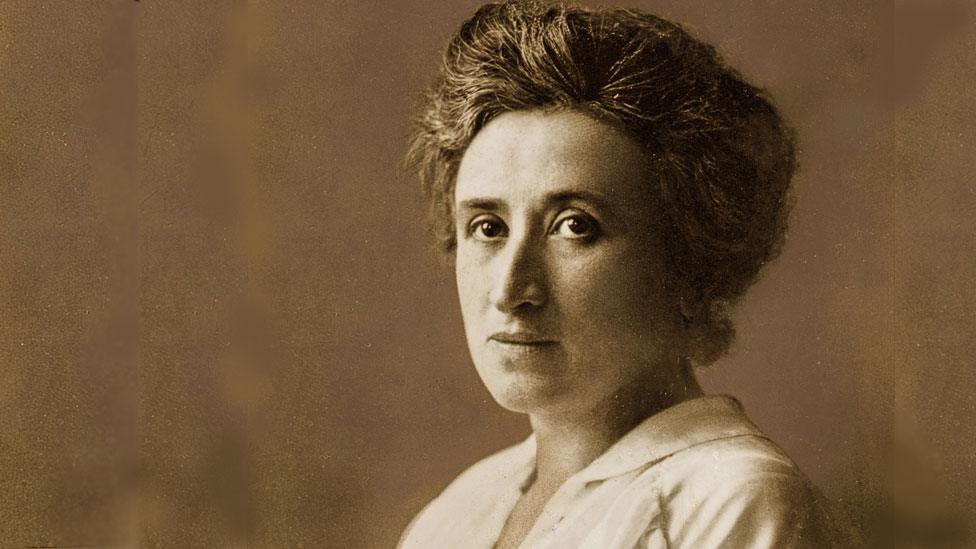
It's 100 years since writer, philosopher and anti-war activist Rosa Luxemburg was murdered at the age of 47 by the Freikorps - a right-wing militia that sprung up amid the social and political unrest that followed the end of World War One.
Such is her legacy that throughout January, thousands of people marched in her memory in Germany alone.
But what is it about her that still inspires younger generations?
Biographers would argue it's her tireless drive to question those in authority - her combative work against political dogma, social inequality, sexism, and discrimination against disability have rendered her legacy vibrant and fresh.
It was that attitude that gained her enemies on both the right and the left of the political spectrum.
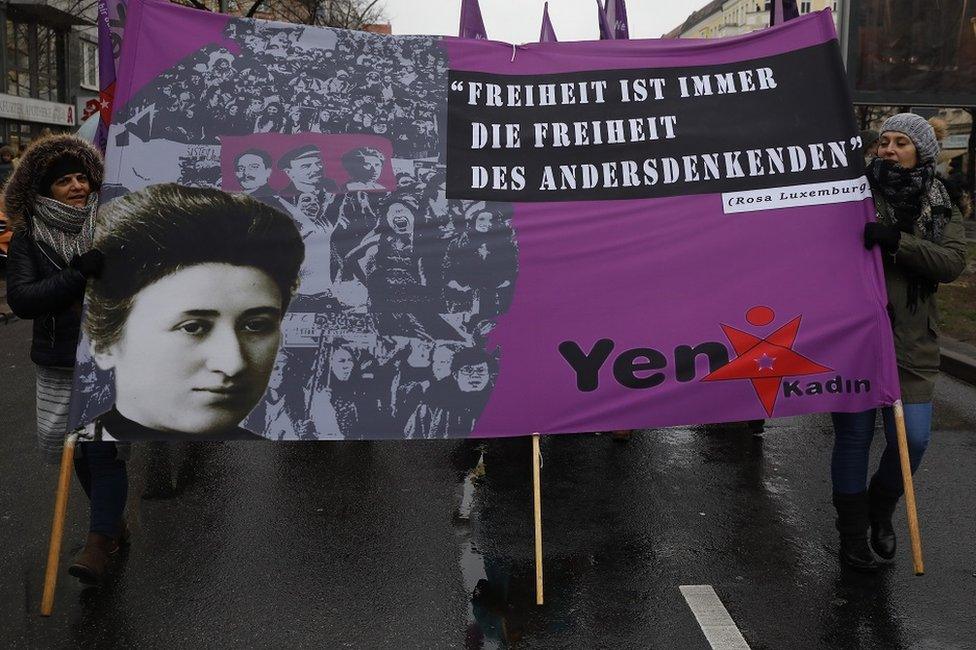
100 years on, Rosa Luxemburg is still remembered on the streets of Berlin
From the very beginning, Rosa Luxemburg, who was born in March 1871, excelled at the art of ignoring the odds and challenging the status quo.
She faced many obstacles in public life. She was born with a limp at a time when physical disability was looked down upon, and as a Jew she was very much treated as a second class citizen in Russian-occupied Poland.
Yet despite those barriers, she went on to become one of the very few women at the time to gain a doctorate at the University of Zurich in Switzerland.
Throughout her life, Luxemburg was jailed many times for her ideas - including opposition to World War One - and although she was inspired by Marxism, she also had no problem being one of its most outspoken critics.

A memorial now marks the spot in Berlin where Rosa Luxemburg was shot in the head and thrown into the canal, possibly still alive
She is also seen as a beacon for the women's liberation movement, even though Luxemburg herself had never fully identified with the feminist movement in her day.
Kate Evans, author and illustrator of Red Rosa, a Graphic Biography of Rosa Luxemburg, tells us her story, in Luxemburg's own words:
1. "I want to burden the conscience of the affluent with all the suffering and all the hidden, bitter tears"
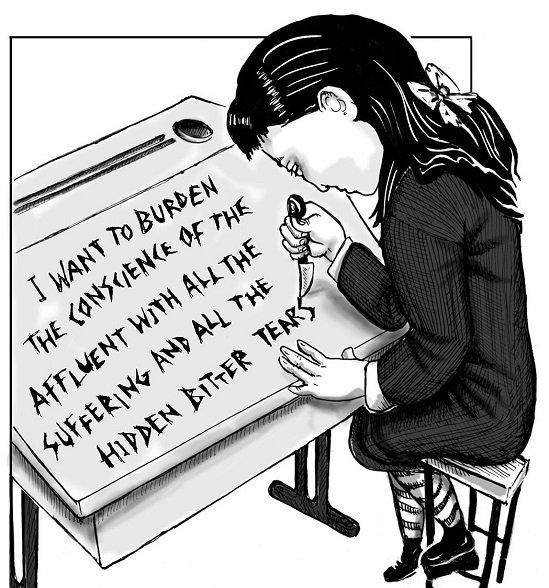
Rosa showed you're never too young to start fighting against inequality
As a schoolgirl in Warsaw in the 1880s, Rosa Luxemburg railed against inequality and human suffering.
2. "Capitalism tends to engulf the entire globe... yet it is unable to exist by itself; it needs other economic mediums as its soil"
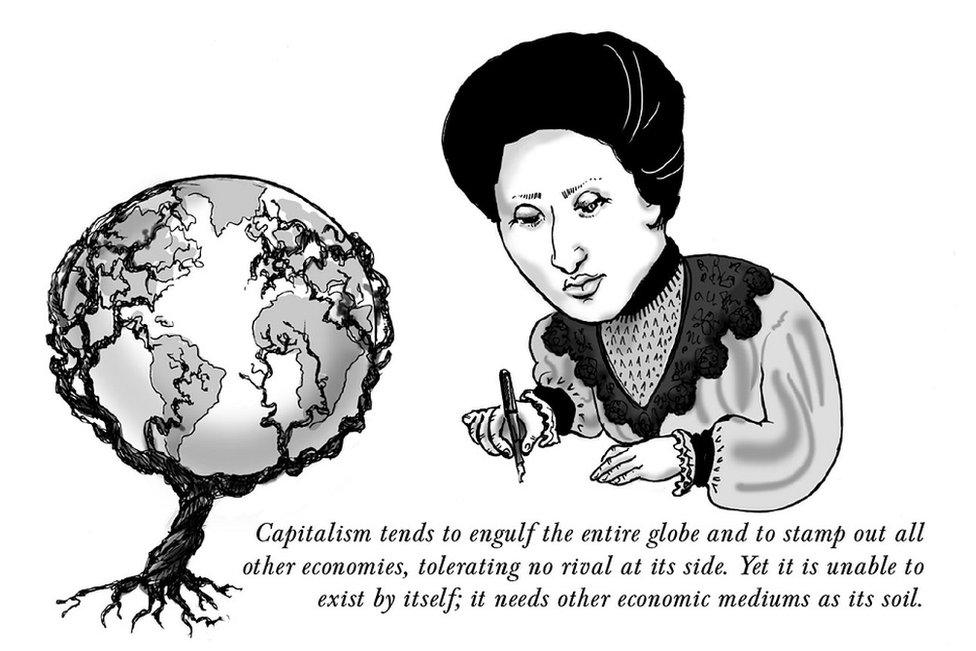
She studied for a doctorate in economics.
Dr Luxemburg argued that capitalism is fundamentally unstable and prone to crises, and predicted some of the causes that led to what we now call the 2008 credit crunch.
3. "Socialism or barbarism"
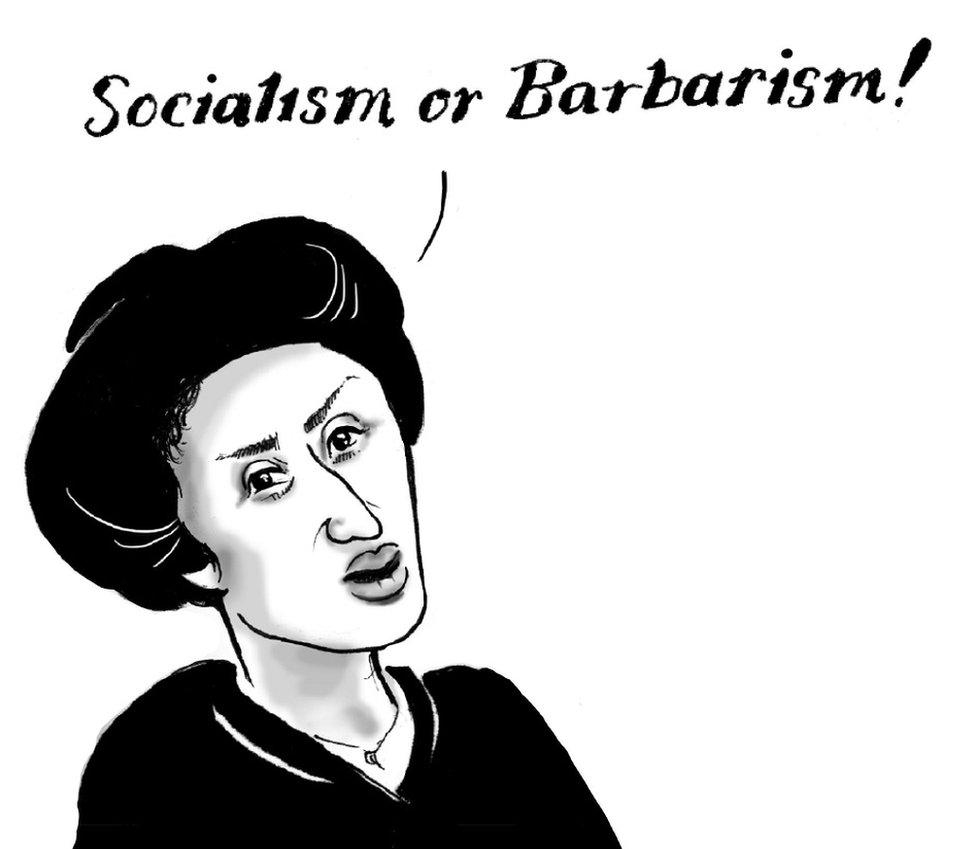
And she firmly believed that when capitalism was in crisis, there was but a simple choice - a socialist society was preferable to the chaos and cruelty she blamed on rampant capitalism.
4. "Only direct mass action can bring about change!"
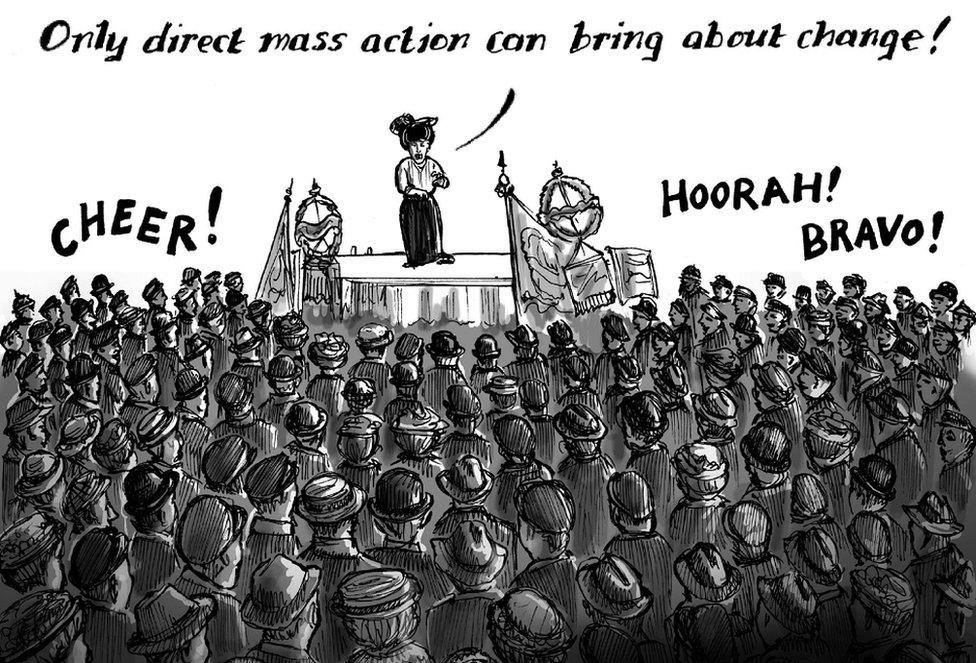
Dr Luxemburg was a supporter of socialist revolution, and she incited people to rise up and take control of their lives.
5. "Freedom only for the supporters of one party is no freedom at all. Freedom is always and exclusively freedom for those who think differently"
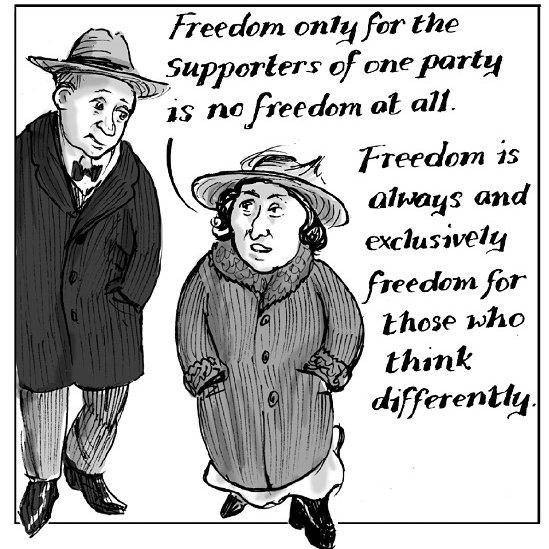
But she was also a democrat. She believed in freedom of the press and freedom of assembly and disagreed with Lenin on these points.
6. "...to sow death and devastation."
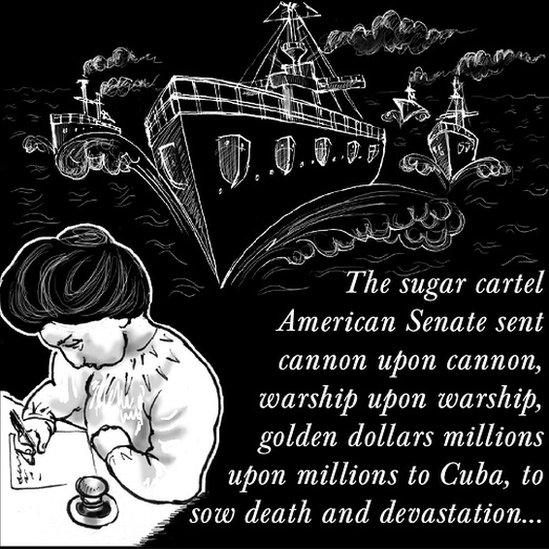
Rosa Luxemburg was a fierce opponent of imperialism.
7. "War is methodical, organised, gigantic murder"
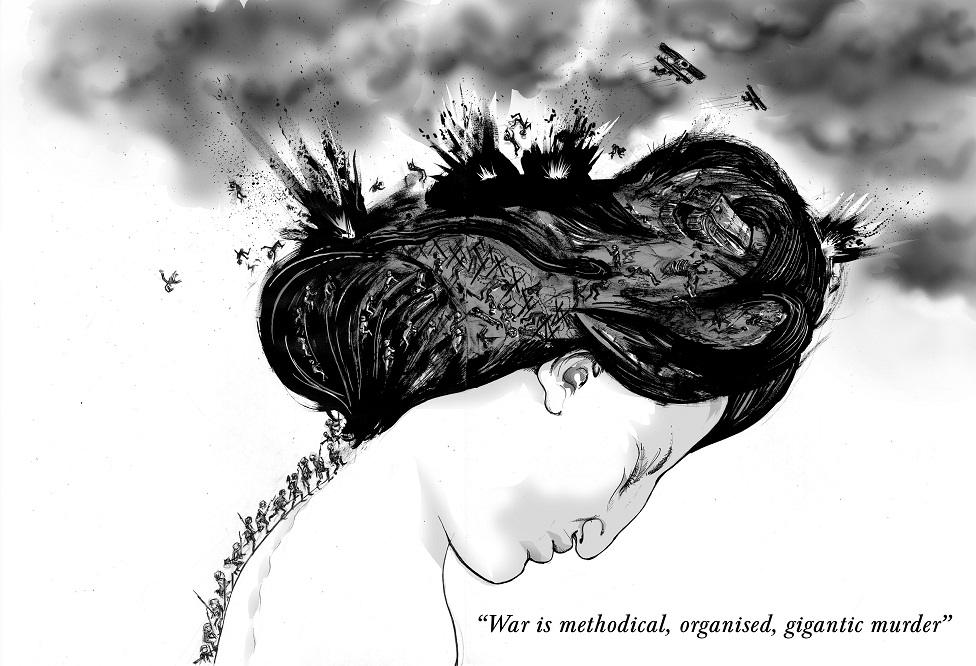
She fought against World War One - was imprisoned as a result - and believed that the generals responsible should have been put on trial for war crimes.
8. "With every fly that one carelessly swats and crushes, the entire world comes to an end"
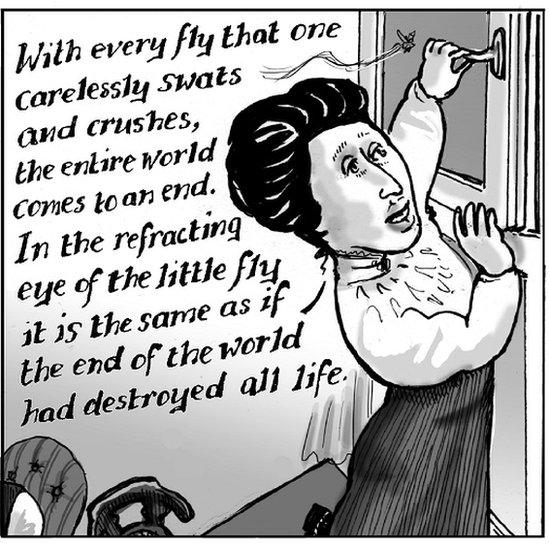
Her respect for life extended to the animal kingdom too. When she was in prison she fed the wasps in her cell from her jam ration.
9. Make no excuses and fight to change the world
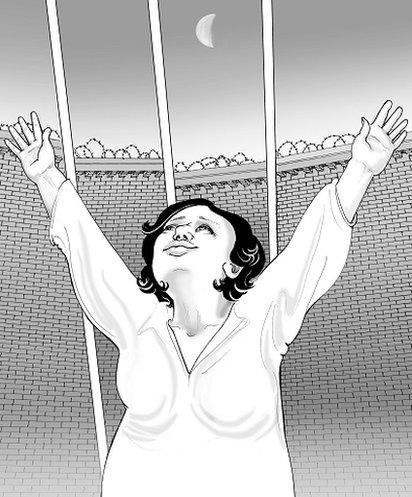
Despite being discriminated against as a woman, a refugee, a Jew and as someone with a physical disability, Rosa Luxemburg became a respected and successful academic theorist, journalist and editor - not to mention an uncompromising socialist revolutionary.

All images from Red Rosa by Kate Evans, Verso Books 2015.
